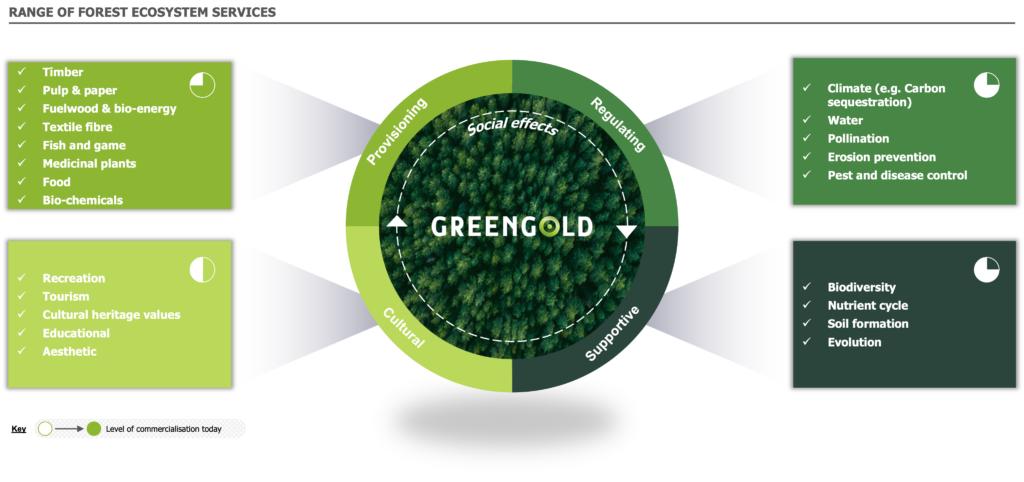Ecosystem services are commonly defined as the benefits people obtain from nature.
Forests provide a wide range of ecosystem services. In addition to providing food, fuel and fiber, forests clean the air, filter water supplies, control floods and erosion, sustain biodiversity and genetic resources, and provide opportunities for recreation, education, and cultural enrichment. Sequestering (or releasing) carbon is a form of climate regulation, which is another important ecosystem service provided by forests and grasslands; specifics of climate regulation depend upon ecosystem structure, composition, and management.
Ecosystem services may be local, regional, or global in scale. For example, the provision of clean water is most often a regional service, most accessible to those within a watershed’s boundaries. Climate regulation can be local or global. By removing and releasing carbon dioxide and other gases, ecosystems regulate the global climate, but land-use change can affect local micro-climates by influencing variables such as temperature and precipitation.
United Nations categorizes ecosystem services as: 1.Provisioning Services, 2. Regulating Services, 3. Supporting Services and 4. Cultural Services

Visiting address:
Kungsgatan 29 (7th floor)
Stockholm
SWEDEN
Mailing address:
Box 7331, SE 103 90
Stockholm
SWEDEN
e-mail: info@greengold.se